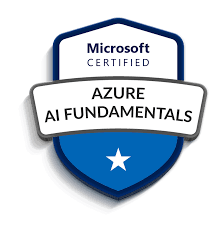Audience
This course is designed for IT professionals who wish to develop cloud computing skills to enable them to move IT workloads to the cloud and integrate products and services from different providers and industries. Their focus is to ensure that cloud deployments are secure, that automation and orchestration are used effectively to bring business value from the cloud, and that costs are controlled through effective management of cloud vendors. This course is also designed for:
• Security Architect
• Security Engineer
• Security Consultant/Specialist
• Information Assurance Technician
• Security Administrator
• Systems Administrator
• Network Administrator
Skills Gained
Cloud Concepts
• Explain cloud principles, identify cloud networking concepts and storage techniques, and understand cloud design aspects.
Business Principles of Cloud Environments
• Identify and employ appropriate cloud assessments like feasibility studies, benchmarking, or gap analysis, highlight key business aspects of cloud vendor relation adoption, and comprehend cloud migration approaches.
Management and Technical Operations
• Explain aspects of operating within the cloud, such as data management or optimization and understand the role of DevOps in cloud environments, like API integration or provisioning.
Governance, Risk, Compliance and Security for the Cloud
• Understand risk management and response concepts related to cloud services and identify the importance and impacts of compliance in the cloud, such as regulatory concerns or international standards.
Course outline
Module 1. Cloud Architecture and Design
• Compare and contrast the different types of cloud models
• Explain the factors that contribute to capacity planning
• Explain the importance of high availability and scaling in cloud environments
• Analyze the solution design in support of the business requirements
Module 2. Security
• Configure identity and access management
• Secure a network in a cloud environment
• Apply the appropriate OS and application security controls
• Apply data security and compliance controls in cloud environments
• Implement measures to meet security requirements
• Explain the importance of incident response procedures
Module 3. Deployment
• Integrate components into a cloud solution
• Provision storage in cloud environments
• Deploy cloud networking solutions
• Configure the appropriate compute sizing for a deployment
• Perform cloud migrations
Module 4. Operations and Support
• Configure logging, monitoring, and alerting to maintain operational status
• Maintain efficient operation of a cloud environment
• Optimize cloud environments
• Apply proper automation and orchestration techniques
• Perform appropriate backup and restore operations
• Perform disaster recovery tasks
Module 5. Troubleshooting
• Use the troubleshooting methodology to resolve cloud-related issues
• Troubleshoot security issues
• Troubleshoot deployment issues
• Troubleshoot connectivity issues
• Troubleshoot common performance issues
• Troubleshoot automation or orchestration issues
Schedule
Click on the following link to see the current Course Schedule
Our minimum class-size is 3 for this course.
If there are no scheduled dates for this course, it can be customized to suit the time and skill needs of clients and it can be held online, at a rented location or at your premises.
Click on the following link below to arrange for a custom course: Enquire about a course date







Reviews
There are no reviews yet.